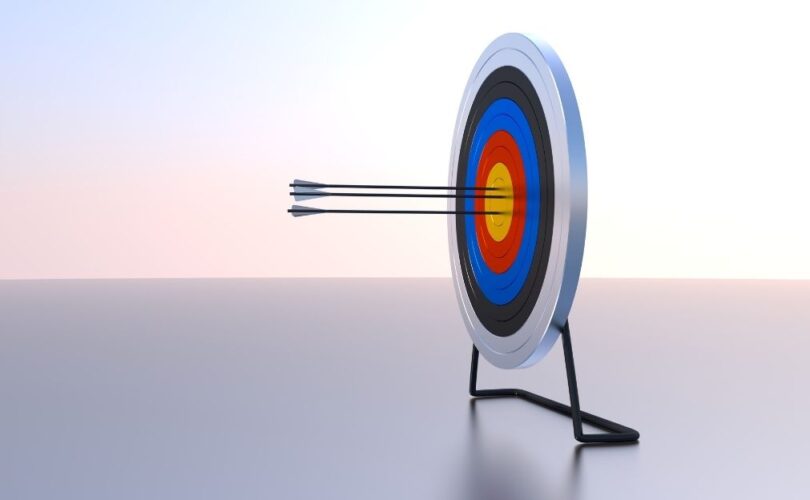Whether you are in a management position and want to be more efficient or you are looking to increase your efficiency at home, we have good news for you. Efficiency is something that you can learn. As long as you have the motivation and drive to do things properly, and to do the proper things, you can turn yourself (your team, office, home, etc.) into a highly efficient operation. Whether you consider efficiency to be a science or an art, you first need to understand the method before you can turn around and apply it to real-life situations.
We all want to be more efficient, there’s a want to be more productive. It isn’t just something that we want to achieve in the workplace either. We want to be more efficient in the home and in our personal lives and relationships, too. We live in a fast-paced world and it’s challenging to stay on top of everything. In fact, it’s downright exhausting.
That exhaustion can make it incredibly difficult to motivate yourself to be efficient. So, we shouldn’t look at efficiency as just something that can make us a better employee or improve our productivity. Efficiency is something that you can use to improve your work-life balance and just your overall contentment with work and life.
The Definition of Efficiency
People often confuse effectiveness and efficiency. It’s easy to do. However, when we talk about being effective, we are really talking about focusing on the right things. Whereas, efficiency is more about doing things correctly. It’s important to note, though, that part of the process of producing the results that we want to see is striking the balance between the two.
If you take the time to make a to-do list every single day that doesn’t mean you are being efficient. You can do a lot of stuff and still be inefficient. What you look for in efficiency is the ability to create maximum output.
Ideally, with the least amount of input. It’s all about using your resources to their optimum, without wasting your effort or your time excessively. You need to make the right decisions in everything, in order to make the most of your resources.
One helpful way to understand efficiency – picture the word come to life. Who do you imagine? You probably know someone who is ultra-efficient, and you’ve maybe even asked them how they manage it all. Some people are naturally efficient, they are productive, proactive, and they are brimming with energy for everything all of the time.
You wish that you could also be like that. You will probably find that they do something they love, so they are raring to go. We don’t all have the luxury of doing jobs that we love, but for those of us who do enjoy their work, there’s a drive that others don’t experience. Not everyone is in a position to walk away from their career to do a job they love either.
So, it’s more challenging to motivate yourself to be efficient and productive. Think about your major moments of procrastination. It might be a passing mood because we all experience feelings of procrastination, even if we do love our jobs.
However, generally speaking, you will find that you procrastinate when you want to avoid a task. Whether it’s because it’s more challenging than you want it to be or you just hate the task. For example, no one dives into their ironing pile with excitement. It’s one of those tasks we often put off because not many people enjoy this chore.
Of course, someone who operates at maximum efficiency wouldn’t allow an ironing pile to exist. As, if you are truly efficient you will iron as you complete your laundry thus staying on top of everything, all of the time.
The Art of Efficiency
The world we live in is stressful. You get to work earlier than you used to, leave later, and pick up emails during the evening and even on your days off. Technology is supposed to make life simpler, not steal our attention and drain our time. So, we now need to be super-efficient all of the time. As we said, you can work on your efficiency and improve yourself.
You know you can improve efficiency by using the correct equipment, choosing the right environment, and training. In addition, you can stop multitasking in its tracks and start focusing on a single task. Don’t forget to encourage everyone else to do the same.
There are a variety of methods that people undertake in a big to make themselves more efficient. One of these is the Pomodoro technique. So, you work for a solid 45 minutes, completely focused on a single task. Then you enjoy a 15-minute break to rest your mind. This is repeated for the rest of the day.
However, there’s also another stream of thought. New York based consultancy firm, the Energy Project, believes in a 90-minute cycle ref.
So, the ultradian rhythm causes your energy levels to dip and rise on a 90-minute cycle. So, work for an hour and a half and then take time out at this point to fuel up. It might be taking a walk, enjoying a banana, listening to music or having a moment of meditation.
You can become a more efficient person, you can improve your workplace, by fine-tuning methods that work. One of the greatest examples of efficiency is found in Japan. People are retrained in a certain manner, hoping to channel their natural tendencies.
So, if someone is particularly disorganized, you organize them. For example, there are station chimes that ring at every stop to ensure you get off at the right stop. Things are stored in a logical place and manner. Homes and temples are landscaped to provide the perfect view.
Now, you can look at the negative aspect of this – it’s an unnatural world of perfection in a lot of ways. However, it’s a level of training and efficiency that we can learn from. The point is, there is a balance to be struck between ultra-efficiency and productive efficiency. You can take it too far and create an unnatural world or environment.
However, you can increase your efficiency and productivity without working overtime every single day and expecting everyone else to follow suit.
14 Tips For Maximum Efficiency
To answer the question, we posed earlier: efficiency is an art. While there may not be a solid formula that will help you perfect the art, there are some tips we can share with you. The key to increasing your efficiency is application and practice.
The more you practice these tips, then the more effective you will become in your efficiency. The good news is that some of these tips also play a large role in you becoming a more productive person, so you can become efficient and productive all in one fell swoop.
- The Hardest Parts First – it’s completely natural to avoid the hardest parts of our day. However, this is just a creative way to procrastinate, you choose busy work and put the rest off. So, if you want to increase your efficiency, you need to make a change in your mindset. Which means tackling the most difficult tasks first. Once you’ve completed the hardest parts of your day, the rest will simply fall into place. The biggest tasks get the best part of you and you have found a way to be more productive and more efficient.
- 80/20 – you may be somewhat familiar with the 80/20 principle (ref.) The idea behind this is that just 20% of your input should create 80% of the results. While it might be run exactly 80/20, the point is that there are things that contribute more to the bottom line than others. You should shift your focus to those critical activities. You don’t have to ignore everything else, you just don’t need to sweat them and give away your energy stores to them.
- Productivity – productivity and efficiency go hand in hand. So, if you want to improve your own efficiency, then you need to empower everyone else to increase their productivity. Whether you are looking to be more efficient at work or at home, it’s all about increasing everyone’s skill sets. That means people learn how to do more and in less time. To be able to do that, though, they need to truly understand the task they are undertaking. That requires practice, practice, practice.
- Keep Learning – you know the saying every day is a school day? If that isn’t the life that you live, then you are doing it wrong. The world we live in is changing rapidly. It changes the landscape of the workplace. Which means that you need to stay informed regarding all the changes that are happening within your industry. Don’t wait for someone to provide you with information or knowledge, instead, seek them out and feed yourself with all the latest trends and methods. Thanks to the internet, there are a wide range of free courses online. You can take yourself to ‘school’ for free on just about any subject. Just remember, there is no point having knowledge unless you use it.
- Delegation – as obvious as this may sound, you might be surprised by how many people truly struggle to delegate. You want to hold onto all the power, to control everything to ensure that it goes well. We get it. You want to ensure quality, and there is nothing wrong with that. However, when you get caught up focusing on every minute detail you are wasting your time. You should be giving certain responsibilities to the employees who are qualified to carry them out. It’s up to you to trust them to get the job done. That doesn’t mean you can’t check in to make sure they are performing. What you do when you delegate is provide your employees with opportunities to increase their skills and provide them with the experience that will benefit you and your business.
- Skill Matching – when you are dealing with employees, you should know their skill levels, you should also know their behavioral style. This is what’s going to help you increase their efficiency. For example, you aren’t going to want to choose an introverted employee to handle big pitches. Just like you don’t want to give a creative a task that is all about details and rules. You need to match their skills to the tasks you are giving them and play to their strengths. Be honest, you aren’t great at everything, are you? So, why would you expect everyone else to be?
- Effective Communication – how can you be efficient without a productive team? Moreover, how can you be productive without being an effective communicator? Thanks to technology, we’re only even a click away from contacting everyone. There’s a problem with that, though. Emails eat away at your time and your employees time. In fact, it’s one of the most time consuming tasks that workers face. So, find a new way to effectively communicate with your teams.
- Clear Goals & Focus – it’s difficult to be efficient when you don’t have a clear goal to focus on. It isn’t even just about having a goal (or goals). Your goals need to be clearly defined for everyone to understand. Moreover, they need to be achievable! When you lay out an assignment it should be narrow, and it should be clear, this will improve efficiency and productivity. The typical standard we follow when setting goals is SMART. Goals should be specific. They should measurable and attainable. In addition, they should be realistic and timely. So, make sure your goals (and those you set for others) fall into these requirements. If they don’t, then you need to revisit your goals and tweak them accordingly.
- Employee Incentives – want to see a real improvement in your (or your teams) efficiency? Incentives can help. It’s all about providing yourselves with a reason to perform. When you offer employees an incentive, you are simply recognizing them for a great job. You might be thinking it’s their job, but it goes a long way in making them feel as though you appreciate them. It’s also encouraging and motivates them. Now, it’s important that you get to know your employees because certain incentives will speak to certain members more than others. Sometimes genuine thanks is enough for some. However, when you can’t provide them with a raise (or a bonus), you can give them extra time off, buy them lunch, write them a note or even provide them with a coupon for a later start. There are a lot of ways to reward your team without spending money.
- Reduce The Excess – review your routine and that of your employees. If there are excess jobs that shift their focus away from the greater goal, then it’s time to reduce those tasks and find a new way of working. A good example of this would be, collations or reports that your employees need to write when no one reads them. If something is a formality and serves no purpose, don’t make them waste their time and resources carrying out the task.
- Develop & Train – do not underestimate the value in developing and training every member of your team. While there may be some tasks well-suited to learning on the job, this isn’t an approach that works for everyone. Don’t think you will save money (and time) by throwing people in at the deep end. It’s more than likely going to backfire. Guidance is key. Once the initial training is over, development should not stop. Provide seminars, offer regular coaching, give them mentors.
- Feedback – constructive criticism makes the world go ‘round. Whether that means a manager holding regular performance reviews or, you share feedback with co-workers (or family members). We could all use a reminder of the areas we need to work on and improve, as well as a pat on the back for where we excel. It doesn’t always have to be about what others can do better. Sometimes, it might be about what you can do better to improve the performance of others.
- Telecommuting – whether it’s you that chooses to telecommute, or you allow your employees to do it, don’t be afraid of telecommuting. It’s time-saving and can make your employees far more efficient and productive. There may be certain situations, like an illness that doesn’t prevent them from working but could be contagious, then working from home is a great option.
- The Big Picture – we spoke about not giving too much time or energy to small tasks that aren’t worth it. However, before you determine which tasks fall under this umbrella, it’s important that you take a moment to consider the big picture. Sometimes, there are tasks that seem inefficient now, but they are advantageous in the long run. So, before you start striking off tasks, be sure to consider the potential long-term benefits. Whether it’s a new software for human resources that will take time and energy now but pay off in the long run. Or, a training process.
The Importance of Efficiency
So, with all this talk of efficiency… why is it so important? Well, in terms of business efficiency, you might be thinking you’re doing well. Your numbers are fine, your employees seem content enough… but, why is okay enough? Especially when you could improve things so much without expending too much energy? Efficiency makes everything better, and it will improve the work-life balance for yourself and your employees. It will ensure your home (or office) runs more smoothly. You can improve lives and numbers by taking the right steps to increase efficiency.
As far as business and industry go, there is a lot of competition out there. It really doesn’t matter what industry you are in, you have to be proactive instead of reactive. We are measured individually and as a whole.
So, it’s important that every person can play their part in increasing efficiency. For example, a safety record isn’t just a reflection of the company overall, it’s a reflection of each person that works in the company. It hinges on everyone playing their role in efficiency. If one person lets the ball drop, it reflects (and affects) everyone.
So, what’s your personal efficiency? It’s not an easy question to tackle because it’s difficult to define the standard of comparison. However, there are some simple ways to put your efficiency to the test. What is a task or job that you complete every single day?
How long should it take for you to complete that task and how long does it actually take you?
Challenge yourself to improve your time each day, without affecting the quality. We often go through the motions and waste time by stretching out easy jobs. This just reduces your efficiency and affects your productivity.
To actually work out your efficiency rate, though, you can take the average time it takes you to do this daily job. Deduct 5% of the time from this (this is to account for lost time due to reasonable interruptions and deductions, etc.).
Now, divide your ultimate performance by your average performance, multiply this number by 100 and you have a rate of efficiency to go by. This is a percentage and it’s just an interesting exercise that will help you improve your personal efficiency. If you have employees, you can suggest this exercise to them.
You don’t need to be involved in them completing it, it can be a personal challenge that you lay down to them after you yourself have done it.
If you are a manager or a business owner, then the most effective way to determine your team’s efficiency levels, then a detailed study might be in order. Quite simply, each task within the operation is timed.
This can produce a measure by which each task can be compared. For example, the standard time for payroll might be two hours. The expectation then would be that the task is completed within that two hours. Or less, for maximum efficiency. You can create the standard and then factor in variations.
The point, though, of completing a time study isn’t just to determine the standard time for a task. It’s also to determine the factors that contribute to tasks taking longer and then eliminating them. For example, if payroll takes longer than the standard two hours… why?
Could it be the software isn’t up to scratch? Or, is it that the computer systems are poor. So, what do you do? Extend the time expectation or fix the problem to improve efficiency? You can choose between cost savings or improving your overall efficiency, which is going to contribute to your bottom line. Thus, improving your operation as a whole.
There is a fine line between creating an efficient environment and creating an over-efficient environment. Creating a standard time measure for each task within an operation is just good sense. However, it can be frustrating and restrictive for employees if they are working to a timer, with no room to maneuver.
So, make sure that when you set these guidelines out you train your employees to a high standard. You want to provide them with the tools they need to complete these tasks within the correct time-frame. It’s unfair, however, to stand by watching, waiting for someone to slip up. This won’t improve anyone’s efficiency, it’s more likely to negatively affect both morale and productivity. So, bear this in mind if you are looking at efficiency in the workplace.
Be prepared to listen to your employees on what holds them back from operating at maximum efficiency. You might want to institute the 90-minute cycle or allow them to try the Pomodoro technique.
Or, you could split the workplace into different groups and have each group try a different efficiency technique. That way you can see what works the best and put this into action. No one knows the day job more than the people who do it, so don’t underestimate what insights they can share with you on how to improve efficiency.
At home, you can improve your efficiency as an individual. However, if you have a partner and/or child, you can’t increase your efficiency without involving everyone. So, don’t shy away from getting everyone on board with your new methods.







